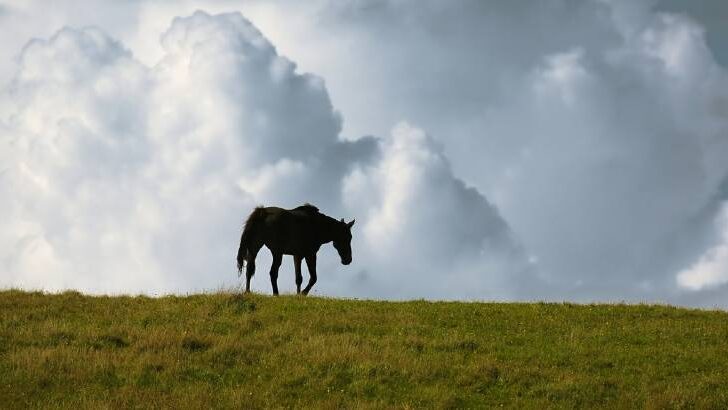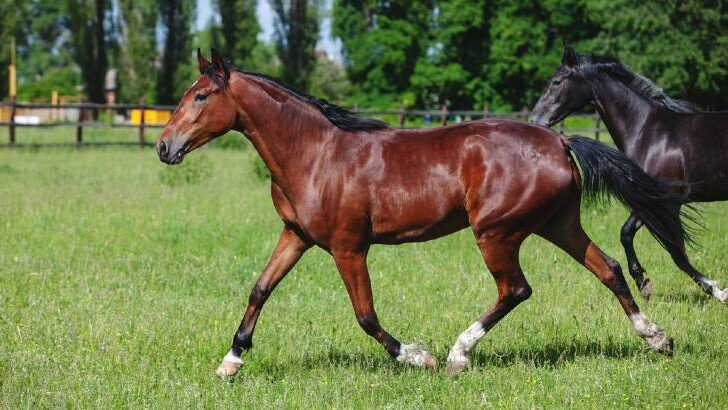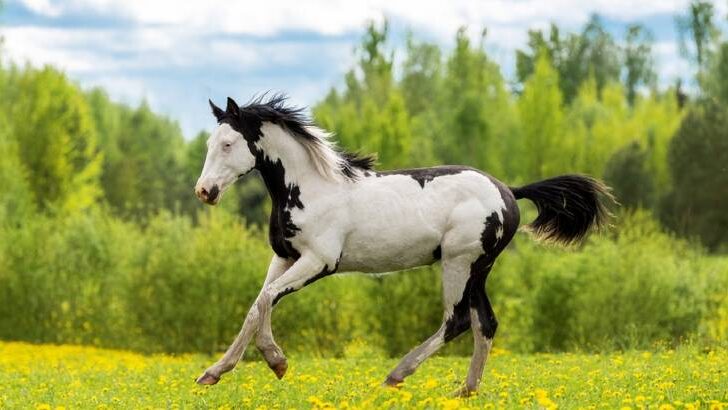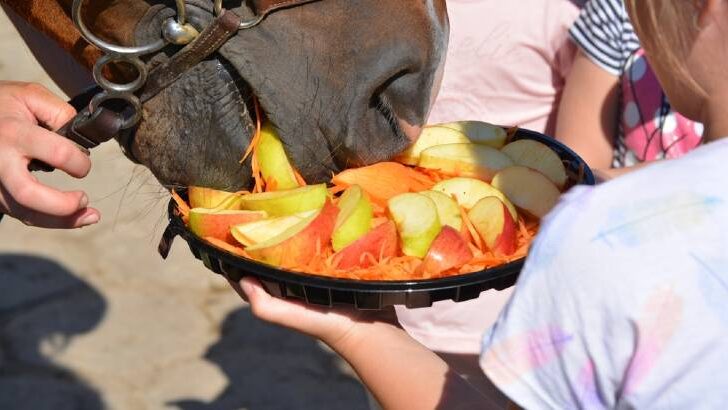Affiliate Disclaimer
As an Amazon Associate I earn from qualifying purchases. It helps me keep the website going. Thank you for your support.
Watching a herd of wild horses at a full gallop is a sight to behold. They communicate changes of pace and direction almost invisibly, and not one crashes into another! Wild horses form strong bonds with each other, and herd life is vital for survival. So why is it that sometimes wild horses get kicked out of herds?
There are several reasons why wild horses get kicked out of herds. These reasons include natural dispersal, such as young colts being expelled to prevent inbreeding. The lead stallion may be cast out by an outside stallion, who fights him to take over the herd. Other herd members might be driven out or choose to leave because of herd conflict or changes to social bonds.
Horses are highly social animals, and wild horse herds have a complex hierarchical structure. The survival of the herd relies on maintaining harmony and strong social connections. Read on to learn more about the life of wild horses and how herd life works.
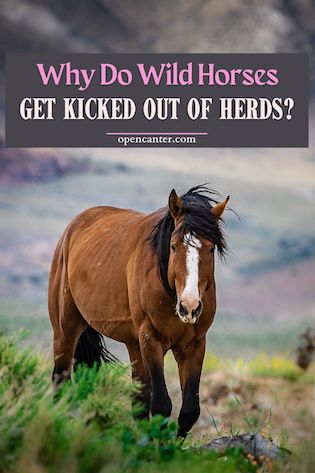
How Do Wild Horse Herds Work?
Because horses are prey animals, they feel safest when living in a herd. As part of a herd, horses can rest or graze while others watch for danger. There is also safety in numbers should a predator get close enough to attack.
Wild horse herds usually have a lead stallion and a few more dominant mares who are responsible for decision-making. These horses play a crucial role in the herd’s safety and cohesion. As time goes on, stallions and lead horses come and go, however, their role within the herd remains the same.
The lead stallion is responsible for protecting and driving the herd. If another rival stallion approaches the herd, it is the lead stallion’s job to protect his herd from any threat. He usually travels at the back of the herd, making sure there are no stragglers.
The movement of the herd is initiated by one or more of the other herd members, usually mares. All of the decision-making does not fall to one horse but rather is seen to be a team effort. The lead horses are the ones responsible for seeking food, water, and shelter when needed.
The rest of the herd members form a hierarchy based on age and personality. Lower on the pecking order are the foals and younger horses. Then comes the more submissive adult horses. Moving toward the top of the hierarchy are horses that are increasingly more dominant and persistent. (source)
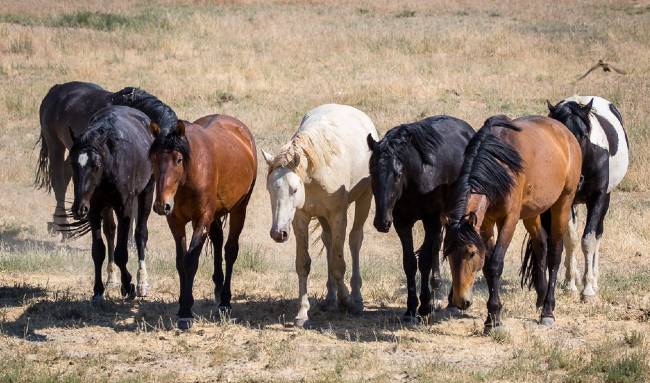
Why Do Wild Horses Get Kicked Out Of Herds?
There are a few reasons why wild horses get kicked out of herds. Here are four of the most common reasons:
1) Natural Dispersal of Young Colts
Once colts (young male horses) reach a certain age, they are forced out of the herd by the lead stallion. This is a normal occurrence that helps prevent inbreeding within the herd. The young colts will often form a bachelor herd and later in life form herds of their own.
2) Challenges to Dominant Stallions
When a lead stallion becomes old or weak, a younger stallion may challenge and overthrow him. These challenges usually involve fights, which can lead to serious injury or even death. This is also a natural process, which ensures the survival of the fittest and maintains the strength of the herd.
3) Social Conflicts or Incompatibility
Just as some domestic horses simply do not get along with their field mates, the same can happen between members of a wild horse herd. Competition for food and water, mating rights, or arguments to establish dominance can become prolonged. Horses that exhibit aggressive or disruptive behavior may be isolated or expelled from the herd.
4) Disrupted Social Bonds
Horses are highly social and form complex bonds with one another. Disruptions to these bonds, such as the death of a companion or the overturn of the lead stallion can cause change to the herd’s dynamics. This change can cause significant disruption, and herd members may be cast out or choose to leave.
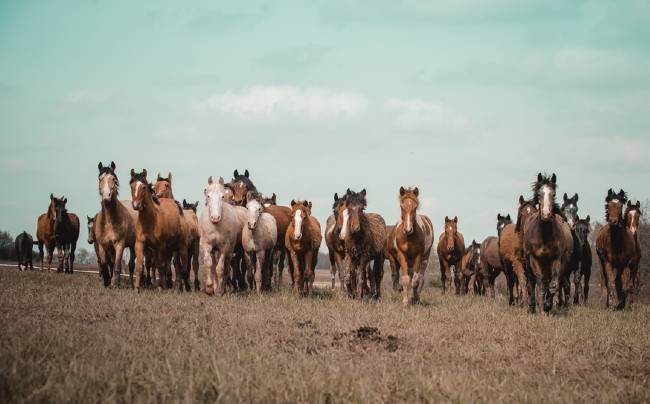
Is It Bad For Wild Horses To Get Kicked Out Of Herds?
This will depend on the reasons why the horse was kicked out of the herd in the first place. In some instances, being kicked out of the herd is a normal part of life. However, for other horses, being kicked out of the herd results in an early death.
For colts who are expelled, while it causes some initial hardship, it is generally not a bad thing. These colts need to be kicked out of the herd to prevent inbreeding. If they were allowed to stay, they may breed with mares to whom they are closely related. This can result in foals who have genetic mutations and who die soon after birth.
Colts kicked out under these circumstances usually band together. Once they have worked out how life works in a new bachelor band, they usually survive quite well. Once they reach maturity, they start to create their own herds.
For horses that were kicked out for causing disruption, the prognosis is not as promising. These horses are often left to survive on their own, which is very difficult. In some cases, these horses are accepted into another herd.
If it was the lead stallion who has been kicked out, it is unlikely he will survive for long either. He will not be able to join another herd and must try and survive on his own. Survival is made even more difficult if the stallion was injured while fighting to protect his herd.
In some cases, the lead stallion is killed by the challenging stallion. This may be in ‘fight to the death’ circumstances or simply due to severe injuries.
What Happens After Wild Horses Get Kicked Out Of Herds?
After being kicked out of a herd, the wild horse’s primary focus is simply survival. They are at greater risk of death without the protection of the herd from predators. Additionally, finding food and water can also present a challenge.
Places, where food and water are plentiful, may be occupied by other herds. Access to the resources in this area will depend on if the outcast is accepted into the herd. If they are not accepted, the outcast will be driven away from the area.
Young colts often band together after they have been kicked out of their herd. This is called a ‘bachelor band’. These are small groups of colts, who have formed a herd of their own after being kicked out. They do this as being in a herd increases their chances of survival, as well as meeting social needs.
These colts remain in the bachelor band until they mature enough to start a herd of their own. This might involve stealing mares from other herds or challenging an existing lead stallion. The members of the bachelor band often go their separate ways once they reach maturity.
For stallions that have been challenged and beaten, life outside the herd is not always as promising. In some cases, the stallion may be injured as a result of fighting to try and protect his herd.
If the stallion is injured, his chances of survival are greatly reduced. If he cannot move properly or seek food or water, he will not survive. However, if his injuries are only minor, he may recover and survive.
When a wild horse has been outcast for another reason, such as causing disruption, they may be able to join another herd. However, this will depend on how receptive the new herd is to outcasts.
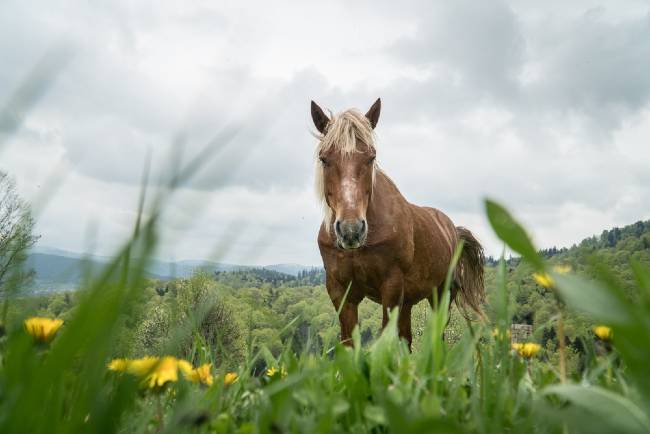
Can Wild Horses Survive On Their Own?
While it is possible for wild horses to survive on their own, it is unlikely that they will survive for very long. This is because they are at a much greater risk of death due to attacks from predators or rival horses. They are also at much greater risk of starvation and dehydration.
Without the protection of a herd, a single horse is an easy target for predators. Additionally, there is a limit to how much a single horse can keep watch for himself. While at rest or grazing, the horse is unable to keep an eye out for predators approaching.
The lone wild horse may also struggle to find food and water. Other herds usually have their own territories, and venturing into these areas can cause conflict. This often involves the lead stallion of the herd driving away the lone horse.
Lastly, survival alone does not meet any of the horse’s social needs. The horse may simply lose the will to live, without any herd mates around them.
Final Thoughts
Wild horses get kicked out of herds for several different reasons. These include natural dispersal, challenges made by outside stallions, social conflicts, and disrupted herd relationships. While being kicked out of the herd presents survival challenges, in some cases, it can be a good thing. It presents the opportunity for new herds to be formed and new leaders to rise.

